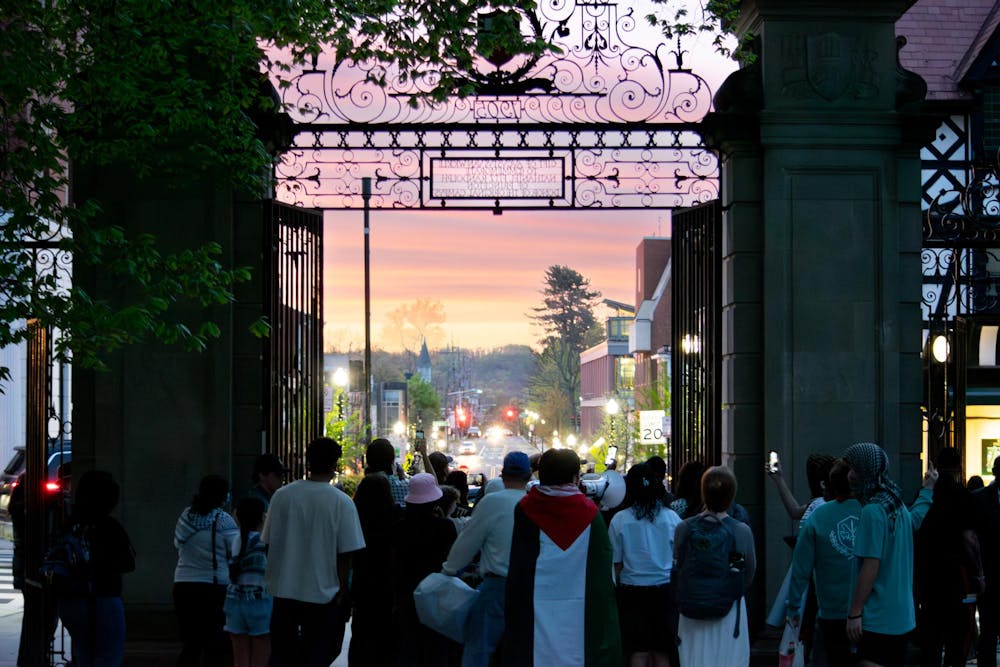After Charlie Kirk’s assassination, Maximillian Meyer ’27, the president of Tigers for Israel, wrote a column for The Daily Princetonian arguing, among other things, that “violence is never the answer.” I strongly agree with him that violence is wrong. But if we’re going to issue blanket statements, we need to treat them as blanket statements, and consistently support those principles in all contexts.
While Meyer and other conservatives have rightfully stated in the wake of Kirk’s death that violence is wrong in all contexts, they have a glaring blindspot: Israel’s killing of tens of thousands of Palestinians in what a United Nations commission has recognized as a genocide.
As students at Princeton, we cannot completely be “in the service of humanity” if we cannot educate ourselves both on global human suffering and the role of our own institution in supporting the current genocide in Gaza. It is our responsibility as Princeton students, by the very words of our informal motto, to oppose this violence using the means available to us.
Human rights organizations, such as Amnesty International and B’Tselem, alongside genocide experts, are coming to a consensus that the Israeli government is committing a genocide. Israel’s prime minister has expressed his desire to “thin” Palestine’s population “to a minimum,” and turn Gaza “into rubble.” Israel has killed at least 65,000 Palestinians, according to the Gazan Ministry of Health (though some projections exceed 100,000). At least 80 percent of casualties are civilians, which is unusual for armed conflicts (in Afghanistan, the rate was 30 percent). The Israeli government has attributed these casualties to Hamas using Palestinians as human shields — an often unsubstantiated claim, according to a UN report in November.
So what can we do, as Princetonians? For one, we can join students at universities across the nation in criticizing our own University’s investment in genocide-complicit companies, particularly those in the American arms industry. The exact extent of Princeton’s investment in genocide-complicit corporations is unknown. However, some pro-divestment students have identified specific investments held by Princeton directly or indirectly at some point in the last several years.
However, the struggle for divestment is currently in limbo. In March 2025, the Resources Committee of the Council of the Princeton University Committee, despite having the power to recommend divestment to the Board of Trustees (which has divested multiple times), refused to recommend divestment from Israel, citing a lack of “campus consensus.”
I realize I can’t convince the president of Tigers for Israel to support divestment (although I think there should be unanimous consensus that genocide is wrong). But to the person who supports the existence of Israel, but not genocide; who fears Hamas, but not the Palestinian people; who opposes violence, but has not realized the scale of Israel’s acts in Gaza: we’re ultimately on the same side. We want peace in the Middle East, and pressuring the Israeli government into ending their genocide is necessary for that. If we agree that violence is indefensible, we can agree that the Gaza genocide is unjustified.
As Princeton students, the most potent tool available to us is pushing for divestment. The international community is turning against Israel’s genocide, and just a week ago, several Western countries recognized an independent Palestine. Unfortunately, the United States probably never will. Maybe the next best thing is a nationwide divestment movement among universities, which would exert significant diplomatic and economic pressure.

Our opposition to violence can’t be conditional: the stakes are nothing less than human life. Every week, hundreds of Palestinians are killed. Innocent children are orphaned or dead, families are broken, and over half a million Palestinians are starving. We have the chance to stand against genocide, and we must choose to do so — because violence is never the answer.
Raf Basas (he/him/his) is a sophomore opinion columnist from Elk Grove, Calif. intending to major in English. He can be reached at raf.basas[at]princeton.edu or @raf.basas on Instagram. His column, “Out of the Ivory Tower,” runs every three weeks on Tuesday. All of his columns can be read here.









